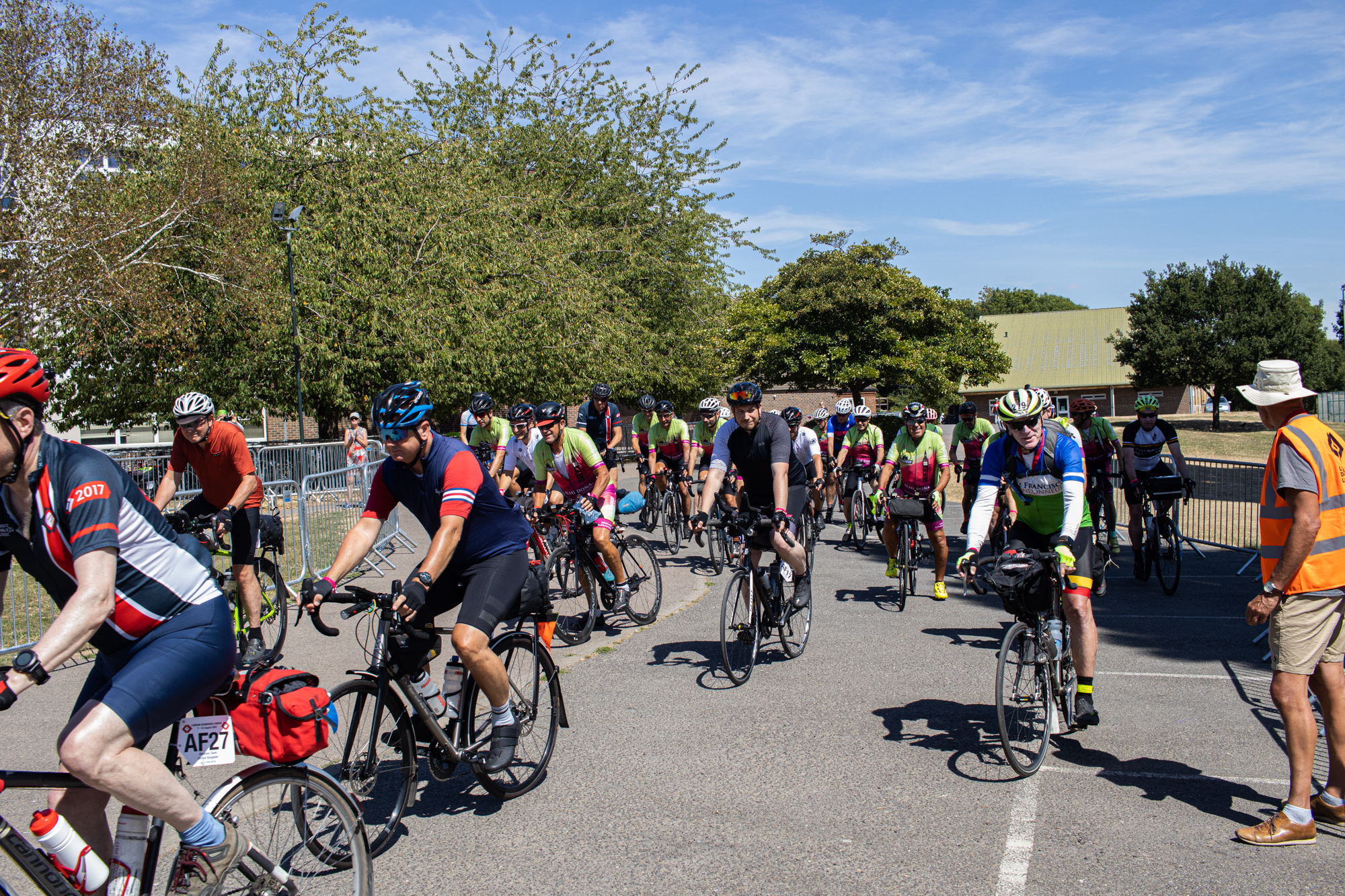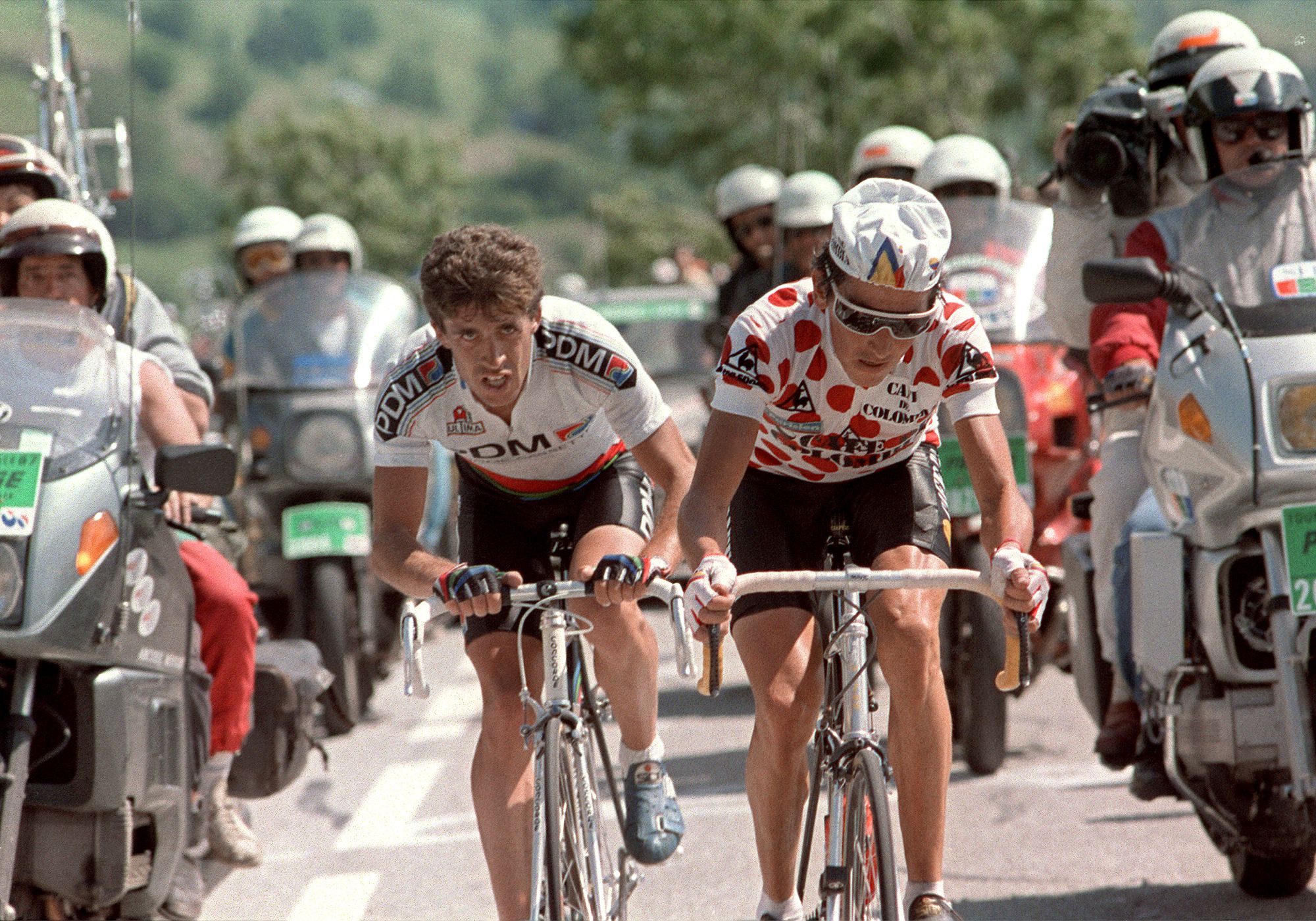Britain's biggest bike ride needs as many volunteers as it does riders - could it be you?
London-Edinburgh-London returns in August, and it needs 2000 volunteers to run


Britain's biggest cycling challenge, London-Edinburgh-London, returns this year, but it needs the help of hundreds of volunteers.
The flagship event of Audaxing in the UK sees around 2,500 people ride from the capital to Scotland and back again, similarly to Paris-Brest-Paris, the iconic self-supported cycling event. Riders are expected to travel approximately 1540km between the 3 and 8 August via 21 different controls.
While the roughly 5000 applicants have already found out if they're successful or not, the event still needs around 2000 volunteers to run smoothly. That's where the organisers hope you might come in. People are needed to man feeding stations, offer riders support, fix bikes, deliver supplies, and ferry dropped bags around.
"We've had 5,000 applications, we've sent out 2,500 offers, and we're hoping to get about 2,250 to start," Liam FitzPatrick, part of the London-Edinburgh-London (LEL) team, told Cycling Weekly. "I think last time around it was in the region of 1,700. To make it work, we have to have about the same amount of volunteers. That's what makes the big difference. When you rock up to a control in the middle of nowhere in Lincolnshire, you need someone to supervise the bike park, the food you get and everything.
"People do it because they've ridden it before and they've had a great time, but we also have people who have no idea what the hell it's all about. You get people turning up and giving up a week of their life, but it's a great experience."
"The whole thing just wouldn't work without them," he continued. "If we had to pay people to do these roles, no one would be able to afford the ride. We need the volunteers. We need specialists as well, because we need mechanics at the control points, and people who are good at talking to people and understanding the situation. We also need drivers, because people drop bags and they'll need them at certain points. There are all kinds of jobs.
"Not everyone needs to be there for the whole week, some people come and do a shift at the start, but some people are there for days. We move volunteers around the country too, so if there's somewhere you've always wanted to check out, then feel your boots. You won't be doing the crappy jobs either, we pay people for that. What we try and do is make sure the volunteers are facing the riders as much as possible."
Get The Leadout Newsletter
The latest race content, interviews, features, reviews and expert buying guides, direct to your inbox!
Anyone interested should check out the LEL website. Volunteers can get up to £120 in travel expenses, accommodation, meals and drinks, two t-shirts, a goody bag, and guaranteed entry to LEL 2029. Or you could just do it out of selflessness.

Thank you for reading 20 articles this month* Join now for unlimited access
Enjoy your first month for just £1 / $1 / €1
*Read 5 free articles per month without a subscription

Join now for unlimited access
Try first month for just £1 / $1 / €1

Adam is Cycling Weekly’s news editor – his greatest love is road racing but as long as he is cycling, he's happy. Before joining CW in 2021 he spent two years writing for Procycling. He's usually out and about on the roads of Bristol and its surrounds.
Before cycling took over his professional life, he covered ecclesiastical matters at the world’s largest Anglican newspaper and politics at Business Insider. Don't ask how that is related to riding bikes.
You must confirm your public display name before commenting
Please logout and then login again, you will then be prompted to enter your display name.
-
 Tadej Pogačar flies to dominant victory at La Flèche Wallonne
Tadej Pogačar flies to dominant victory at La Flèche WallonneSlovenian takes second win at Belgian classic ahead of Kévin Vauquelin and Tom Pidcock
By Tom Thewlis
-
 Colombian climbing star and former Vuelta a España winner Lucho Hererra could be investigated over murders of four people
Colombian climbing star and former Vuelta a España winner Lucho Hererra could be investigated over murders of four peopleA judge has called for an investigation into the former Vuelta winner who is alleged to have worked with paramilitary groups in Colombia
By Tom Thewlis